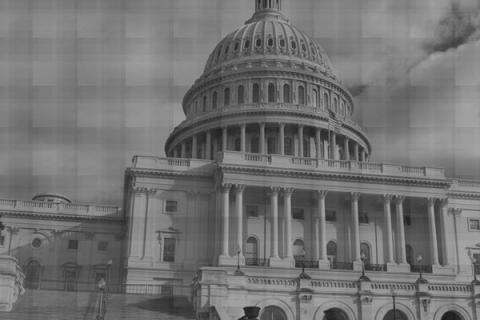 Maksim Kabakou / Shutterstock.com
Maksim Kabakou / Shutterstock.com
The latest scandals coming out of Washington concerning the NSA, data mining phone records, PRISM, and other federal programs concerning public safety vs. individual privacy -- especially online privacy -- has bumped the issue to the forefront of political and public discourse in America. However, according to OpenSecrets.org, there was already a huge lobbying interest over these issues in 2013 long before these programs were made public.
When the Cyber Intelligence Sharing and Protection Act (CISPA) was considered before the U.S. House and passed in mid-April, it caught people's attention nationwide. The bill would create the legal framework for a voluntary system where private Internet companies share information with the government during a cyber attack. Civil liberty and privacy groups raised issue with this, sparking a massive online effort to protest the bill similar to the online protests against the Stop Online Privacy Act (SOPA) and Protect IP Act (PIPA) in 2011.
Over the last few years, online privacy and information protection has become a major issue in the United States. It was a hot topic in 2012 and with the latest scandals involving NSA surveillance programs, it is shaping up to be a defining issue in 2013. Several bills, including CISPA, are currently making their way through Congress, and while most of the focus has been on the bills themselves, one cannot ignore the lobbying efforts associated with them
During the first quarter of the year, 192 organization registered to lobby CISPA -- the fifth highest amount for the year.
PRISM, an Internet surveillance program that is said to target foreign nationals by using major Internet companies, has incorporated the help of Facebook, Google, Microsoft, Apple, AOL, and others to implement the program. FBI officials argued before congressional leaders that there was need to update a law from 1994 to allow companies to comply with wiretap orders for online communication. It doesn't seem to be too necessary anymore now that information surrounding PRISM has become public.
The lobbying efforts on Capitol Hill by the companies involved is rather interesting. Google leads the pack, spending $18.2 million on lobbying in 2012 and $4.1 million so far this year. Though it did not come close to matching Google's total last year, Facebook seems to be increasing its lobbying efforts in 2013. The social network company has spent $2.45 million in 2013, possibly on track to pass the $3.85 million it spent in all of last year. Microsoft remains the second largest lobbying force of the Internet and tech companies under Google.
All of these companies have lobbied bills dealing with Internet restrictions, online privacy, consumer activity on Internet sites, and more. As these issues become bigger and bigger, the lobbying effort from the Internet and tech community grows larger and larger.
